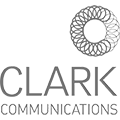Sharpening Your Boss’s Communications Edge
It may be hard to believe in this day of embattled CEOs, but some occupants of the corner suite refuse to acknowledge their communications skills need fine-tuning. Some executives practice avoidance even in the throes of a crisis.
As the PR pro in your organization, it is your job to persuade your chief to sharpen his ability to connect with reporters, shareholders, policymakers, and employees. If you fail in this task, you’re likely to take the blame rather than your boss.
Influencing The Executive Mind
How can you induce your leader to participate in a media or presentation skills training program? Start by pointing out the benefits both to your organization and to your chief on a personal level.
Position the need for training by telling your boss that he is nurturing an increasingly high public profile. What sufficed when he was a vice president is not good enough for him today. His prestige merits some individual coaching.
Appeal To The Ego
Remind him that virtuosos in every field employ coaches to help them improve. Baseball slugger Barry Bonds has a hitting coach. Robert DeNiro learns from acting coaches. Your CEO, even if he is a speaking superstar, deserves a trusted coach who can continue to advance his learning, too.
Your CEO did not roll out of bed one day with all the expertise needed to run your enterprise. Similarly, none of us are born with sparkling speaking abilities. Excellence comes only with practice.
Fortify Your Organization
Here are some pointers that can help convince your boss to follow the route to improved communications performance. From an organizational point of view, an executive media training or public speaking workshop can help:
- Gain an edge on the competition.
- Craft a magnetic message.
- Reduce the likelihood that your next media campaign will fail.
- Position your organization front and center in the minds of reporters.
- Increase the odds for a successful new product launch.
- Prevent your rivals from stealing your customers.
- Prepare for a crisis situation.
- Save time by hammering out messages and preparing in advance.
- Avoid a sleepy media profile by going beyond the trade press to high-profile outlets such as The New York Times and CNN.
- Maintain confidentiality when that is a concern.
- Offer ongoing education to senior members of the executive team who work with the public or press.
Appeal to Your Leader’s Personal Goals
Your organization will reap the rewards when your executives have more communications polish. Yet it’s also important to remind your CEO that he will benefit on a personal level as well. Some of the personal benefits include the ability to:
- Convey confidence during presentations and media interviews.
- Work to correct a delivery flaw that makes him self-conscious.
- Boost career opportunities.
- Keep from wandering aimlessly when delivering remarks and talking to the press.
- Steer clear of the dreaded misquote.
- Assume control during question and answer periods.
- Avoid the embarrassment of poor performance during a high stakes speech or interview.
- Sharpen nonverbal tools for maximum advantage.
- Take charge when dealing with reporters.
- Refuse to be sidetracked by hostile or off-point questions.
- Get the mistakes out of his system in the security of an executive training environment.
Final Considerations
As your organization’s resident PR pro, you need to recognize an added bonus that executive communications coaching offers you in your role as a key advisor. Every executive needs frank advice in order to achieve communications success. In the extreme, you might be dying to tell your boss to ditch that unflattering toupee. Or, he may have an annoying verbal habit. If there is a matter so sensitive that you dare not discuss it with him (perhaps because you’d like to keep your job), you can have trainers raise it as part of the preparation process.
Your boss’s workshop needs to be educational but fun, too. So tell your boss he will have some fun in the bargain.
Your executive may be hesitant to firm up his communications abilities. You
can help both him and your organization by serving as a catalyst for improvement. The benefits are many. Get to work to turn the boss’s “no” into an enthusiastic “yes.”
